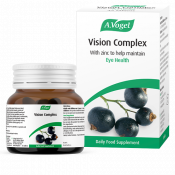Has your eyesight changed?
The most obvious indicator that something has changed with your eyesight is blurred vision or difficulty seeing things. You don't need me to tell you, a change in the quality of your vision is a clear indication for booking an appointment with an optometrist.
However, there are many signals that you are due a visit that you may not have considered. It is also important to remember, the health of your eyes can indicate the state of your health in general so it is important to be aware of any changes that may occur.
If our vision hasn't changed, it can be difficult to spot when our eyes are in trouble. It's not the same as if you sprain your ankle or cut your finger; often the signs and symptoms are more subtle and quite often not as bothersome. This means they can go unresolved for long periods. Here are some things to watch out for:
- Hazy, blurred or double vision
- Seeing flashes of light or sudden floating spots
- Severe, sudden eye pain
- Sudden development of persistent floaters (specks that float in your field of vision).
- Seeing a curtain coming down over the eye
- Any form of red eyes
- Recurrent pain in and around the eye
- Seeing rainbow or halos around lights
- Seeing floating spider-webs
- Gradual or sudden change in vision
- Any developments of bumps or lumps, on or around the eyelid (i.e. styes or cysts).
Everyday things to look out for
There are some everyday things that may not seem too impactful for the health of your eyes, but could be signs that something isn't quite right. If you recognise yourself or a loved one in this list, it might be time to book an appointment with the optometrist:
1. Having problems moving around:
- Having difficulty walking on irregular or bumpy surfaces.
- Walking or stepping hesitantly
- Going up and down stairs slowly and cautiously.
- Shuffling the feet.
- Brushing against walls while walking.
2. Everyday Activities
- Discontinuing or doing certain activities differently such as reading, watching television, driving, walking, or engaging in hobbies.
- Squinting or tilting the head to the side to focus on an object.
- Having trouble locating personal objects, even in a familiar environment.
- Having problems doing fine movements that require focused eyesight.
- Knocking things over while reaching for another item or missing objects by under-reaching
3. Reading and Writing
- No longer reading letters, newspapers, or books.
- Holding reading material very close to the face or at an angle.
- Writing less clearly and having trouble writing on a line.
- Finding that lighting that was previously sufficient is now inadequate for reading and other activities.
Changes in children's eyesight
If you have children, it can be more difficult to spot changes with their vision. They may not tell you if something is wrong so look out for these clues:
- Sitting close to the TV.
- Blinking more often.
- Rubbing their eyes.
- One eye turning in or out.
- Holding objects very close to the face.
Prevention is better than cure!
It is so important to keep the health of your eyes in check. We rely on our eyes for our quality of life, so being alert to changes is a wise move. I always think that prevention is better than cure, so even if the signs and symptoms are irrelevant to you right now, make sure you take care of your eyes by:
- Drink 1.5 litres of water per day.
- Eat a diet full of colourful fruits and vegetables.
- Include omega 3 fatty acids in the diet regularly; oily fish, walnuts, flaxseed and soybeans.
- Include zinc-rich foods in the diet: pumpkin seeds and wholegrains.
- Wear good quality sunglasses when needed.
- Minimise time spent looking at screens or doing work that requires focused vision.
- Practice good eye hygiene, especially when using make up or contact lenses.
- Attend to dry eyes or infections as quickly as possible. A.Vogel's moisturising Eye Drops are brilliant to have somewhere handy to make sure you are not caught with dry eyes that can lead to irritation.
- Drink moderately.
- Cut out a smoking habit - this is important if you want long-lived healthy eyes. Smokers are much more likely to develop age-related macular degeneration, which is the most common cause of sight loss in the UK and Ireland.
A.Vogel Self-Care Tip: Taking care of your eyes
Take a look at my self-care tip for taking care of your eyes:
If you feel you would like some extra help keeping your eyes in good nick while you implement these good habits, try A.Vogel Vision Complex. It is packed full of high quality vitamins and minerals such as lutein, zinc, beta-carotene & zeaxanthin to support healthy eyes.









